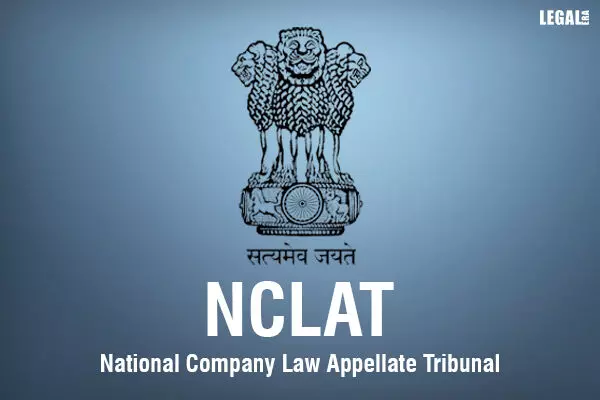- Home
- News
- Articles+
- Aerospace
- AI
- Agriculture
- Alternate Dispute Resolution
- Arbitration & Mediation
- Banking and Finance
- Bankruptcy
- Book Review
- Bribery & Corruption
- Commercial Litigation
- Competition Law
- Conference Reports
- Consumer Products
- Contract
- Corporate Governance
- Corporate Law
- Covid-19
- Cryptocurrency
- Cybersecurity
- Data Protection
- Defence
- Digital Economy
- E-commerce
- Employment Law
- Energy and Natural Resources
- Entertainment and Sports Law
- Environmental Law
- ESG
- FDI
- Food and Beverage
- Gaming
- Health Care
- IBC Diaries
- In Focus
- Inclusion & Diversity
- Insurance Law
- Intellectual Property
- International Law
- IP & Tech Era
- Know the Law
- Labour Laws
- Law & Policy and Regulation
- Litigation
- Litigation Funding
- Manufacturing
- Mergers & Acquisitions
- NFTs
- Privacy
- Private Equity
- Project Finance
- Real Estate
- Risk and Compliance
- Student Corner
- Take On Board
- Tax
- Technology Media and Telecom
- Tributes
- Viewpoint
- Zoom In
- Law Firms
- In-House
- Rankings
- E-Magazine
- Legal Era TV
- Events
- News
- Articles
- Aerospace
- AI
- Agriculture
- Alternate Dispute Resolution
- Arbitration & Mediation
- Banking and Finance
- Bankruptcy
- Book Review
- Bribery & Corruption
- Commercial Litigation
- Competition Law
- Conference Reports
- Consumer Products
- Contract
- Corporate Governance
- Corporate Law
- Covid-19
- Cryptocurrency
- Cybersecurity
- Data Protection
- Defence
- Digital Economy
- E-commerce
- Employment Law
- Energy and Natural Resources
- Entertainment and Sports Law
- Environmental Law
- ESG
- FDI
- Food and Beverage
- Gaming
- Health Care
- IBC Diaries
- In Focus
- Inclusion & Diversity
- Insurance Law
- Intellectual Property
- International Law
- IP & Tech Era
- Know the Law
- Labour Laws
- Law & Policy and Regulation
- Litigation
- Litigation Funding
- Manufacturing
- Mergers & Acquisitions
- NFTs
- Privacy
- Private Equity
- Project Finance
- Real Estate
- Risk and Compliance
- Student Corner
- Take On Board
- Tax
- Technology Media and Telecom
- Tributes
- Viewpoint
- Zoom In
- Law Firms
- In-House
- Rankings
- E-Magazine
- Legal Era TV
- Events
NCLAT: Application Under Section 95 Of IBC Against Personal Guarantor Maintainable Before NCLT Even Without CIRP Or Liquidation Process

NCLAT: Application Under Section 95 Of IBC Against Personal Guarantor Maintainable Before NCLT Even Without CIRP Or Liquidation Process
The NCLAT New Delhi bench, comprising Justice Ashok Bhushan (Judicial Member) and Mr. Arun Baroka (Technical Member), has ruled that an application under Section 95 of the Insolvency and Bankruptcy Code (IBC) against a personal guarantor is maintainable before the NCLT under Section 60(1), even if no Corporate Insolvency Resolution Process (CIRP) or liquidation proceedings are initiated or pending against the corporate debtor.
The appeals were filed against an order passed by the Adjudicating Authority, which had admitted an application under Section 95 and directed the appointment of a Resolution Professional (RP) to proceed in accordance with the law.
The appellants argued that the appointment of the RP did not comply with Section 97(3) of the Code, which mandates that the Insolvency and Bankruptcy Board of India (IBBI) should nominate the RP. They further contended that the NCLT was not the appropriate authority to entertain an insolvency application against the personal guarantor.
In response, the respondents countered that the jurisdictional objections regarding the NCLT's authority were not raised before the Adjudicating Authority and, therefore, could not be raised at this stage. They also argued that the RP appointed was eligible and qualified, with no pending disciplinary proceedings against him.
The NCLAT, in its observations, referred to Rule 8 of the Personal Guarantors Rules, 2019, and concluded that there was no error in the Adjudicating Authority’s appointment of the RP. The RP had provided consent in Form C and certified that no disciplinary proceedings were pending against him, thus satisfying the requirements of Section 97(3) of the Code.
The key issue before the NCLAT was whether an application against a personal guarantor could be maintained before the NCLT when no insolvency or liquidation process was pending against the corporate debtor. The tribunal cited Section 60(2) of the Code, which uses the phrase "without prejudice," interpreted by the Supreme Court in the case of Shri Shiv Kripal Singh vs. Shri V.V. Giri (1970). The Court had held that this phrase indicates that subsequent provisions should not limit the generality of the section.
The NCLAT also referred to previous rulings, including the 2022 case of State Bank of India vs. Mahendra Kumar Jajodia, where it was held that an application under Section 95(1) was maintainable even if no CIRP or liquidation proceedings were pending against the corporate debtor. Similarly, in the 2023 case of Mahendra Kumar Agarwal v. PTC India Financial Services, the NCLAT ruled that it is not a prerequisite for CIRP or liquidation proceedings to be ongoing against the corporate debtor for an application against the personal guarantor to be maintained before the NCLT.
The tribunal concluded that, based on these precedents, an application under Section 95 against a personal guarantor is maintainable even if no insolvency or liquidation proceedings are pending against the corporate debtor. Consequently, the appeals were dismissed.


